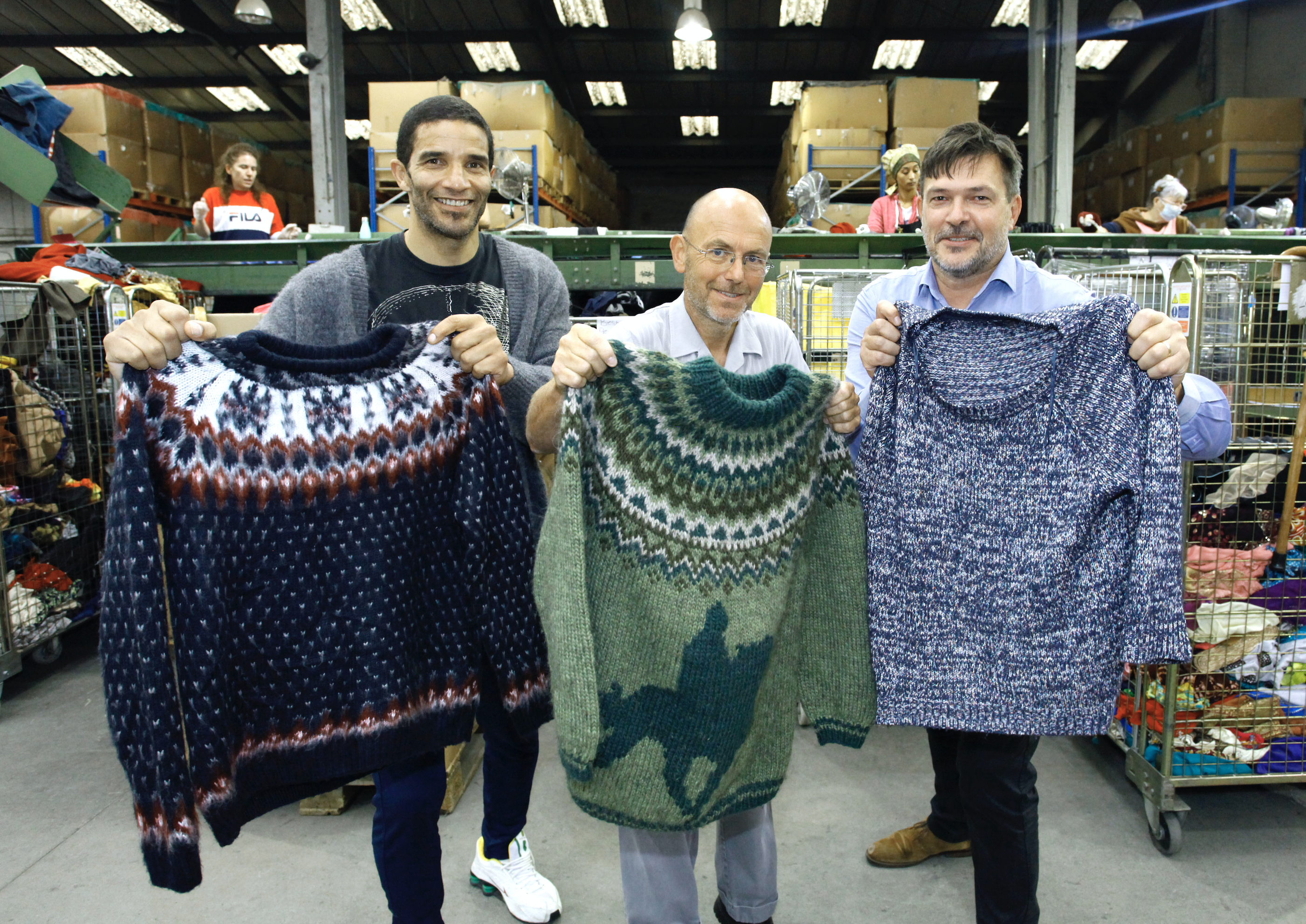Put on a jumper and turn down the thermostat
With rapidly rising energy prices focusing the mind, designer Wayne Hemingway is backing a new campaign to encourage us to put on another jumper when we feel chilly instead of setting the thermostat higher

A new consumer behaviour change campaign is calling on 13 million UK households not to heat their homes any higher than 21 degrees and consider other ways to get warm instead. Such as donning more jumpers. Pictured above, from left: former England goalkeeper and environment campaigner David James MBE. designer Wayne Hemingway MBE and Utilita Energy founder Bill Bullen. www.wearwarm.co.uk
The Wear Warm campaign is launching after research from Utilita Energy showed that almost half of the nation’s homes are heated to 24 degrees centigrade for half the year - the same temperature as Barbados.
Based on 48 per cent of the UK’s homes being heated to 3 degrees higher than the recommended healthy heat (18-21 degrees), that's equivalent to an additional 13 million tonnes of CO₂ emissions each year - the same pollution generated by around seven million cars each year.
To promote the importance of getting cosy over getting costly this winter, the Wear Warm campaign will be featured nationwide at 657 charity shops.
The Wear Warm campaign is supported by former England goalkeeper and environmentalist David James MBE and British designer Wayne Hemmingway MBE.
James says one of his personal bugbears is 'seeing people sitting at home in winter wearing a T-shirt, with the heating cranked up. There’s absolutely no sense in it, and now we have the evidence to reveal the impact that this type of behaviour is having on the planet and the pocket. For example, to offset the pollution generated by overheated homes here in the UK, we’d need to plant 51 million trees each year - that’s enough to cover 392,000 football pitches.'
Hemingway says 'it’s bloomin’ obvious really, it totally makes sense to put another layer on and it makes sense on many levels; for the environment, for your health (cooler environments help prevent the spread of a number illnesses) and your pocket. Why wouldn't you?'
Maria Chenoweth, CEO of TRAID, has signed up its 12 charity shops to take part in the Wear Warm campaign. 'The UK is so fortunate to have a thriving network of 11,200 charity shops, on nearly every high street. Let’s use them to stay warm!
;If you need to replenish your winter wardrobe, buy second-hand. It’s one of the best things you can do for the environment, especially when you consider that 10,000 items are thrown into landfill every five minutes in the UK alone, while the global fashion industry pumps out 3.3 billion tonnes of greenhouse gases annually contributing significantly to the climate crisis.'
The cost of overheating our homes
The average annual saving for homes reducing their thermostat by three degrees is £174. That’s a £2.32 billion annual saving for those who are currently overheating. In addition, around half (51 per cent) of households say they use additional sources of heat, including:
Electric fan heater (25%) - Cost £3 per 8 hours / same pollution as driving 6 miles
Oil-filled radiators (21%) - Cost £3.40 per 8 hours / same pollution as driving 17 miles
Gas cooker (19%) - Cost 64p per 8 hours / same pollution as driving 12 miles
Electric blanket (17%) - Cost £8p per 8 hours / same pollution as driving 0.4 miles
A third of households that use an additional heat source say they don’t know if it is cheaper than using gas central heating system. Another third say they know the additional heat source is more expensive than the central heating, but use it regardless.
Archie Lasseter, global warming expert and sustainability lead at Utilita Energy, wants people to see the potential environmental impact of turning down the thermostat. 'If every household made a pledge to stay within 18-21 degrees, the UK would hit its net zero obligation almost two years ahead of its deadline.
Bill Bullen, Founder and CEO of Utilita Energy, says no one should live in freezing homes due to poverty but many of us are complacent about the environmental impact of turning up the thermostat above 21 degrees. Energy bosses and MPs have previously been berated for daring to suggest that consumers put a jumper on to stay warm, and on the subject of fuel poverty - it’s not the right message. But there’s no excuse for today’s Government to avoid a simple ‘don’t go above 21 degrees message’, as we have.